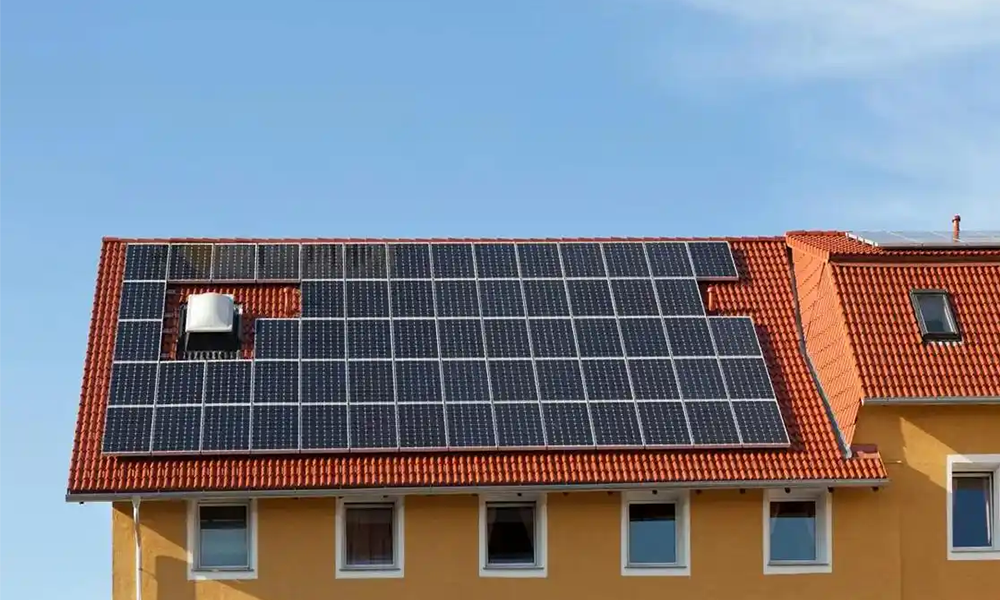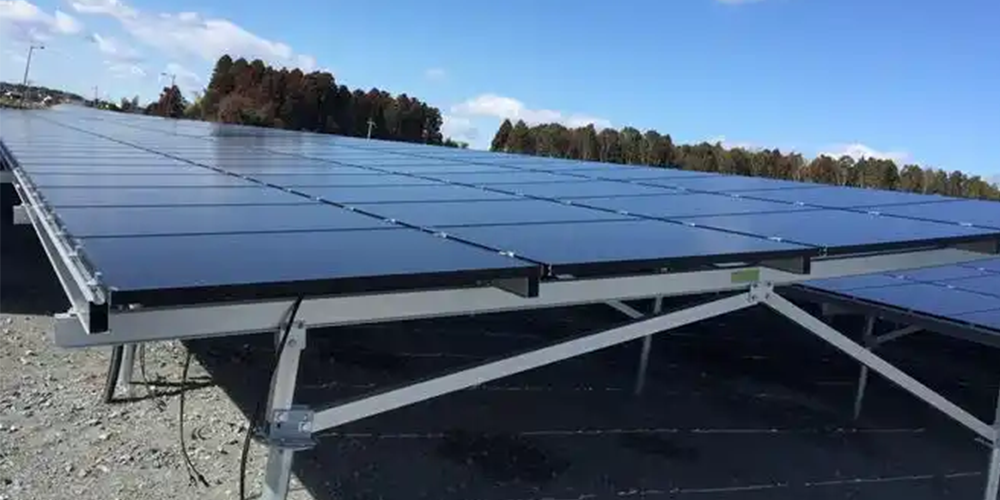When considering solar power as a renewable energy source, one of the critical decisions is whether to install solar panels on the ground or on a rooftop. Both options have their unique set of advantages and disadvantages. In this blog post, we will delve into the various types of ground-mounted solar systems, their benefits, drawbacks, and compare them with rooftop solar systems to help you make an informed decision.

Types of Ground-Mounted Solar Systems
Ground-mounted solar systems are categorized based on their foundation and installation method. Here are the primary types:
- Concrete Foundation Type: Suitable for sites where ground insertion is not feasible, these systems use concrete foundations to secure the solar panels.
- Beam Driving Type: Involves driving C-shaped or H-shaped steel structures into the ground, offering a quick installation process.
- Ground Screw Type: Utilizes spiral-shaped screws driven into the ground, providing a stable and environmentally friendly option.
- Precast Concrete Foundation Type: Uses precast concrete foundations for easier installation and stability.
Advantages of Ground-Mounted Solar Systems
- Flexibility in Installation Location: Ground-mounted systems can be installed in various locations with ample sunlight,不受of roof space limitations.
- Ease of Maintenance: Panels can be easily accessed for cleaning and maintenance, ensuring optimal performance.
- 확장성: These systems can be easily expanded or reduced in size based on energy needs, making them suitable for both small and large-scale applications.
- Reduced Rooftop Stress: Avoids the potential damage to rooftop structures and waterproofing.
Disadvantages of Ground-Mounted Solar Systems
- Higher Initial Investment: Due to the need for additional infrastructure like foundations, ground-mounted systems typically cost more upfront.
- Space Requirements: Large-scale ground-mounted systems require significant land area, which might not be feasible for all properties.
- Weather Dependence: Performance can be affected by weather conditions, such as shading from trees or heavy snowfall.
- Installation Complexity: Requires more complex installation processes and may take longer compared to rooftop systems.

Comparison with Rooftop Solar Systems
Ground-Mounted Systems
Pros:
- Greater flexibility in installation location.
- Easier maintenance and accessibility.
- Scalability to meet changing energy needs.
- No impact on rooftop integrity.
Cons:
- Higher initial cost and more complex installation.
- Requires significant land area.
- Performance can be affected by weather conditions.
Rooftop Solar Systems
Pros:
- Utilizes existing roof space, saving land.
- Generally lower initial investment.
- Easier integration with building aesthetics.
- Potentially higher energy yield in urban areas with limited space.
Cons:
- Limited by roof orientation, tilt, and available space.
- Potential damage to rooftop structures and waterproofing.
- Maintenance can be more challenging and costly.
- Difficult to expand or modify once installed.
Conclusion
Choosing between ground-mounted and rooftop solar systems depends on various factors, including your property size, available space, budget, and energy needs. Ground-mounted systems offer flexibility and ease of maintenance but come with higher initial costs and space requirements. Rooftop systems are generally more cost-effective and integrate well with buildings but are limited by roof conditions and may be more challenging to maintain.
By understanding the pros and cons of each option, you can make an informed decision that best suits your specific situation and goals for renewable energy adoption.
Ground-Mounted Solar Panels vs Roof-Mounted

For many homeowners, ground-mounted solar arrays often represent a better choice than rooftop installations. While rooftop solar panels are a popular option, considering a ground-mounted system can offer several advantages.
When it comes to cost, ground-mounted solar support systems typically match the price per watt of rooftop panels. If your roof is unsuitable due to structural limitations or insufficient space, opting for a ground-mounted system can be more cost-effective in the long run.
Rooftop solar systems are limited by the specific attributes of the roof. If the angle is incorrect (for example, not facing south), or if there are obstacles such as shadows or chimneys, the system’s efficiency will be greatly reduced. On the other hand, ground-mounted panels offer flexibility and can be placed in the most advantageous location on your property.
For households with high electricity demands, a typical rooftop may not provide enough space to install a system that meets your requirements. In such cases, ground-mounted solar panels offer a viable solution, allowing you to meet your energy needs without being constrained by space limitations.
Should You Consider a Ground-Mounted Solar System?
Deciding on a ground-mounted solar panel system often depends on your specific circumstances. Typically, you might encounter higher initial costs, but these can be offset by savings over the system’s lifespan due to increased efficiency. Each project has its unique aspects, and we are eager to help you evaluate various scenarios.
We can provide customized ground-mounted solar systems, but we also typically offer additional options, including rooftop systems and floating solar systems. These solutions are tailored to your needs, aiming to maximize the use of available space and enhance potential energy production.
